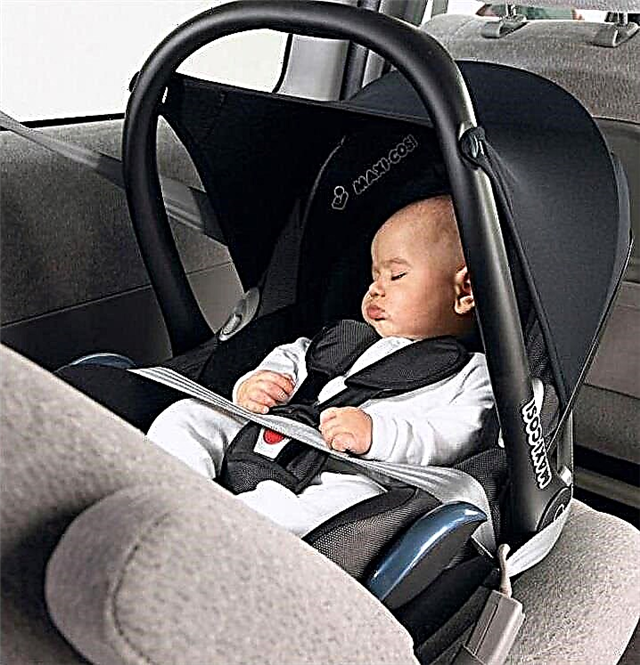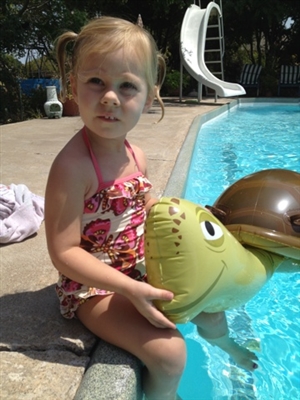What words do you most often say to your child - "can" or "not"? Both are extremely important for young children: "can" instills faith in their own capabilities and fosters trust in the world around them, and "no" sets the boundaries of what is permitted and gives a sense of security. Let's talk about when, in fact, you need to establish strict prohibitions, and when you can allow the baby to do what he wants.

10 things that shouldn't be forbidden to children
Of course, parenting is not complete without a moderate number of prohibitions necessary for physical and emotional safety. However, psychologists say that there are ten things that should not be prohibited to the baby.
- Dressing, eating and drinking independently
Of course, you will do it better, better and faster than the child, but you will hardly help his development. Pediatric specialists generally consider self-button-fastening and glove-pulling to be one of the best exercises for improving finger motor skills and, therefore, for brain development.
Allocate more time to get ready so that your child can eat breakfast or get dressed at his own pace, without hurrying or fussing. Of course, if you are afraid of being late, you can say: “I'm sure you can handle the clothes yourself, but we need to hurry. Let me help you now, and in the evening you can put on your pajamas yourself. " And the ability to use a spoon or a mug will come in handy in kindergarten, unless you want to stuff lunch into the "clumsy" you brought up before school.
- To help parents
How often can you hear from indignant mothers: "My son does not want to do anything at home!" But for some reason they forget how several years earlier they protected him and expensive objects from interaction: "Don't touch, or you'll break it!", "Put it back, break it!" Adults fear that the baby will have to be redone, but after all, he needs to feel his own importance and need and hear parental approval. Ask (do not demand) your child to help you with household chores, allow you to carry out simple assignments and do not forget to thank for the work done.
- To be active
When a baby makes noise, runs, jumps and fools around, he actually physically develops and relaxes, throwing out the accumulated energy. Of course, such behavior is not encouraged in public places (clinic, shop), but at home you can allow him to be as he is. Maybe you should join in and fool around with him?
Some mothers forbid children to climb on the horizontal bars, preferring to play quietly in the sandbox. Yes, it's easier for them to be banned than to show them how to climb in and out, to control their body. Allow vigorous exercise, backing up if necessary.
- Sleep with the light
The fear of the dark is a natural fear for children of four to five years old, who at this age are psychologically separated from their mother. The price for such autonomy is the emergence of nightmares in the child, in which reality is closely intertwined with fiction and fantasy. A dim night light will calm your little one when he wakes up and help make sure that there are no scary monsters around. However, it is believed that light disrupts the natural flow of sleep, so introduce lighting as a temporary measure.
- Get dirty
Do not be afraid that the child will get dirty when picking up a paintbrush or felt-tip pens. Purchase special non-toxic paints, spread oilcloth on the floor or table, equip your baby with an apron - let him draw.
Allow also to engage in exploratory activities while walking. Let the child tumble in the grass, measure the depth of the puddle, throw up armfuls of autumn leaves, without worrying about dirty clothes. After all, you probably own a washing machine.
- Explore items
Let the children understand the purpose and structure of a wide variety of objects. You will be surprised, but many child development experts recommend telling your baby: “Touch things. Squeeze, shift from one hand to another, pull, open, knock, think and tear! " An exclusive toy is sometimes less attractive to a child than a pile of old newspapers or a box with buttons. If you are afraid for expensive dishes or valuable trinkets, move them away from tenacious and inquisitive handles. Or try to consider it together, explaining why this thing is so dear to you and that it is better to find another item to play with.
- To watch cartoons
Yes, we have already said that the quality of modern cartoons sometimes does not stand up to criticism, and educational programs are not as useful as it is commonly believed. However, it is important for today's children to be aware of popular cartoons in order to discuss them with their peers. Pick up the programs and animations that you find useful. Be sure to watch them with your baby, discuss controversial issues and give examples of acceptable behavior.
- Leave food on the plate
Do not force your child to leave clean plates on the table. Eating should be a pleasure, not a medieval torture. Firstly, you can always argue about the size of the portion and the number of dishes. And nutritionists are worried about the rapidly growing number of little fat men. Secondly, do not distract children with cartoons, cunningly shoving as many spoons of healthy porridge as possible. The real benefits will appear when the child feels the taste of food, begins to chew slowly, considers lunch as a pleasant ritual.
- Fantasize
Fiction is a natural interweaving of fantasy and reality for children. Help your child distinguish fantasy from deliberate deception. Tell that his story is very similar to a fairy tale, ask him to come up with something else similar. Try to show a genuine interest in his fantasies, thereby encouraging the development of a creative personality.
- Express personal opinion
Try to take into account children's interests, desires and opinions. Argument your decisions without dismissing the phrases "Because I decided so!" or "Dad and I know better how to do it!" Do not try to schedule his time by minute either. Perhaps he just wants to come up with his own game, and not just sitting in a corner, not doing anything.
5 things you definitely need to ban
And yet the word “no” should not completely disappear from your educational vocabulary. However, it should be prohibited only in the most exceptional cases concerning child safety. And your ban must assume its absolute fulfillment. Let's find out what you should definitely prohibit your child.
- Beat others
Sometimes babies do not yet know how to express their own emotions in words, applying blows and bites to parents, peers and pets. Do not allow starting a fight with children, stop the child if he hits you or abuses the unfortunate kitten. Stop the kid's hand, say, looking into his eyes: "You cannot fight and beat others."
- Take someone else's
Explain to the children that you cannot dispose of things that do not belong to them. It is unacceptable to take away someone else's toys, spoil someone else's clothes, take unpaid goods from the store, etc. If the baby brought not his own toy from the kindergarten, firmly ask him to return it back.
- Be rude
Introduce the children to polite words, morality and the rules of decency. By personal example, show that you need to say hello, apologize, thank you, but you cannot use foul language, spit, or be rude to elders.
- Violate "safety techniques"
Use pictures or cartoons to learn safe behaviors for toddlers. It is very accessible and clearly described that it is categorically impossible to play on the road, stick your fingers into sockets, climb on the windowsill and play with matches. These are categorical, absolute prohibitions!
- Talking to strangers
Do not intimidate the kid, but be sure to discuss this "no" in detail. Designate a so-called "circle of trust" in which you include your friends, neighbors, parents in kindergarten. Play situations: for example, what should you do if an unfamiliar uncle calls you to see a kitten?
Too many restrictions are the main reason why a child stops responding to parental words. If there are too many of them, then you risk raising a “comfortable” baby. Establish categorical prohibitions, coordinate them with all household members and do not be afraid to change them when the child grows up.
- Parental prohibitions - benefit and harm: consultation of psychologist Irina Mlodik
- Unnecessary prohibitions: how we ruin the lives of our children
- How to tell your child “CAN'T” correctly
- 5 alternatives to say NO to your child



